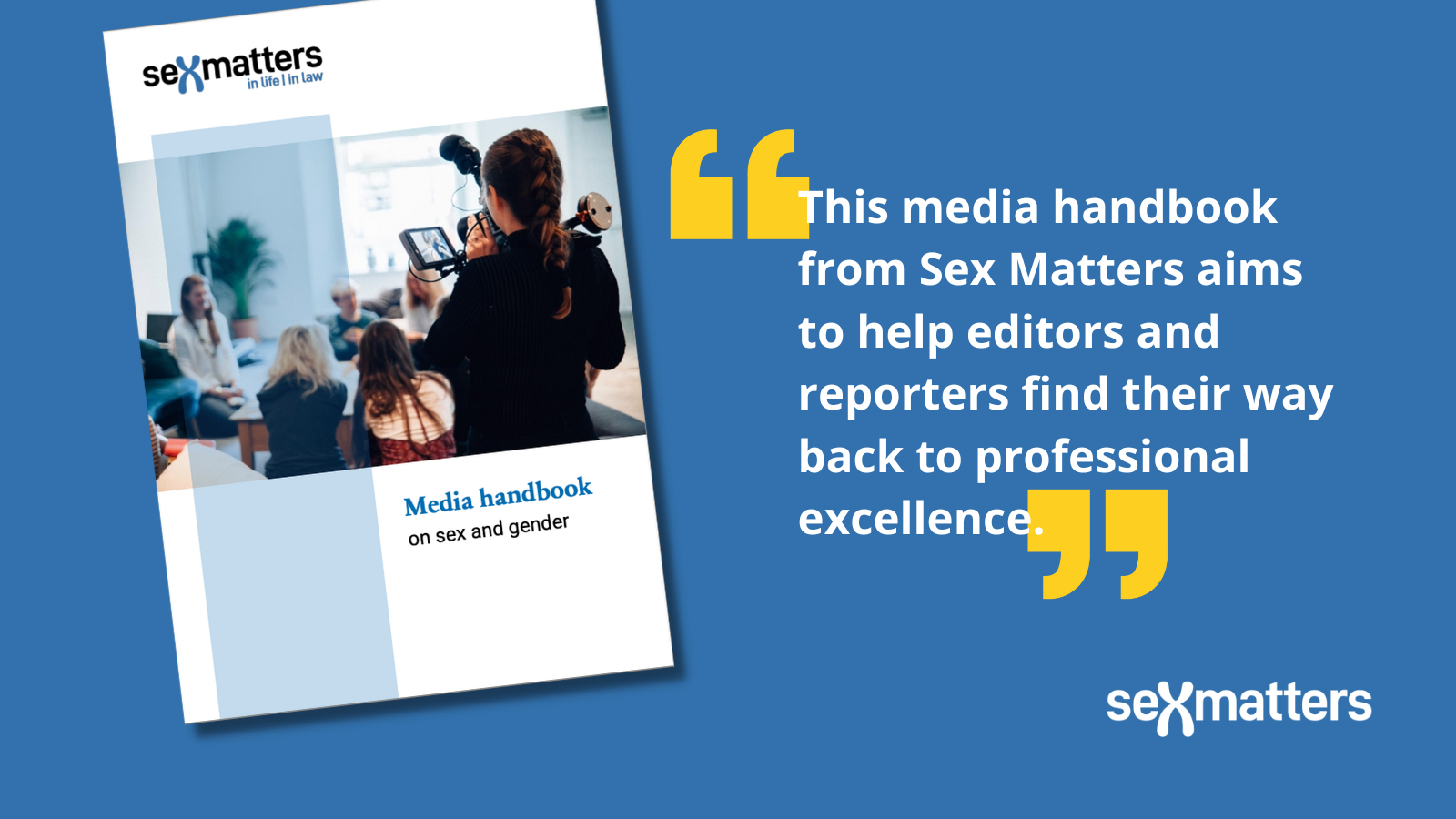New media handbook on sex and gender

Sex Matters is publishing a handbook today, which aims to give journalists the confidence to write accurately, clearly and professionally about sex and gender.
The past decade has seen a determined effort by transactivists and gender-identity lobby groups to make it impossible to talk about biological sex in a straightforward, comprehensible way. This effort has affected every sphere of life, from education and lawmaking to business and the charity sector. But nowhere is it more obvious, or consequential, than in the media, where reporting on issues of grave importance to public and private life has been hampered by convoluted and misleading speech codes.
Organisations such as IPSO in the UK and GLAAD in the US have produced media guides which suggested, explicitly or implicitly, that it is bigoted for a journalist to mention a person’s sex, or any name they previously went by, if that person does not want those facts mentioned. This is a serious breach of journalistic standards, which place editorial independence, accuracy and comprehensibility above all else.
The result has been confusing and misleading stories in which male paedophiles and rapists, and male athletes competing in women’s sporting events, are described without qualification as women. Important policy debates have gone uncovered as journalists and their editors shied away for fear of causing offence, or of incurring the wrath of activist groups or even regulators. Many of those critical of the trans agenda have been silenced, including women campaigning to keep men out of women’s spaces, and anyone proposing that gender-distressed children should be treated according to evidence, not ideology. Even when stories critical of the trans agenda do appear they may be distorted. For instance, a story in the Daily Mail about a woman sexually assaulted in prison by a trans-identified male was distorted by the editor changing the pronouns the victim used for her assailant from “he” to “she” in direct quotes.
This media handbook from Sex Matters aims to help editors and reporters find their way back to professional excellence. It explains when and why it is both reasonable and right to talk about people’s sex, and the harms that result if they fail to do so. It is based on UK law, but its guiding principles – clarity, accuracy, balance and editorial independence – are universal, meaning that it will be useful for journalists elsewhere too.
